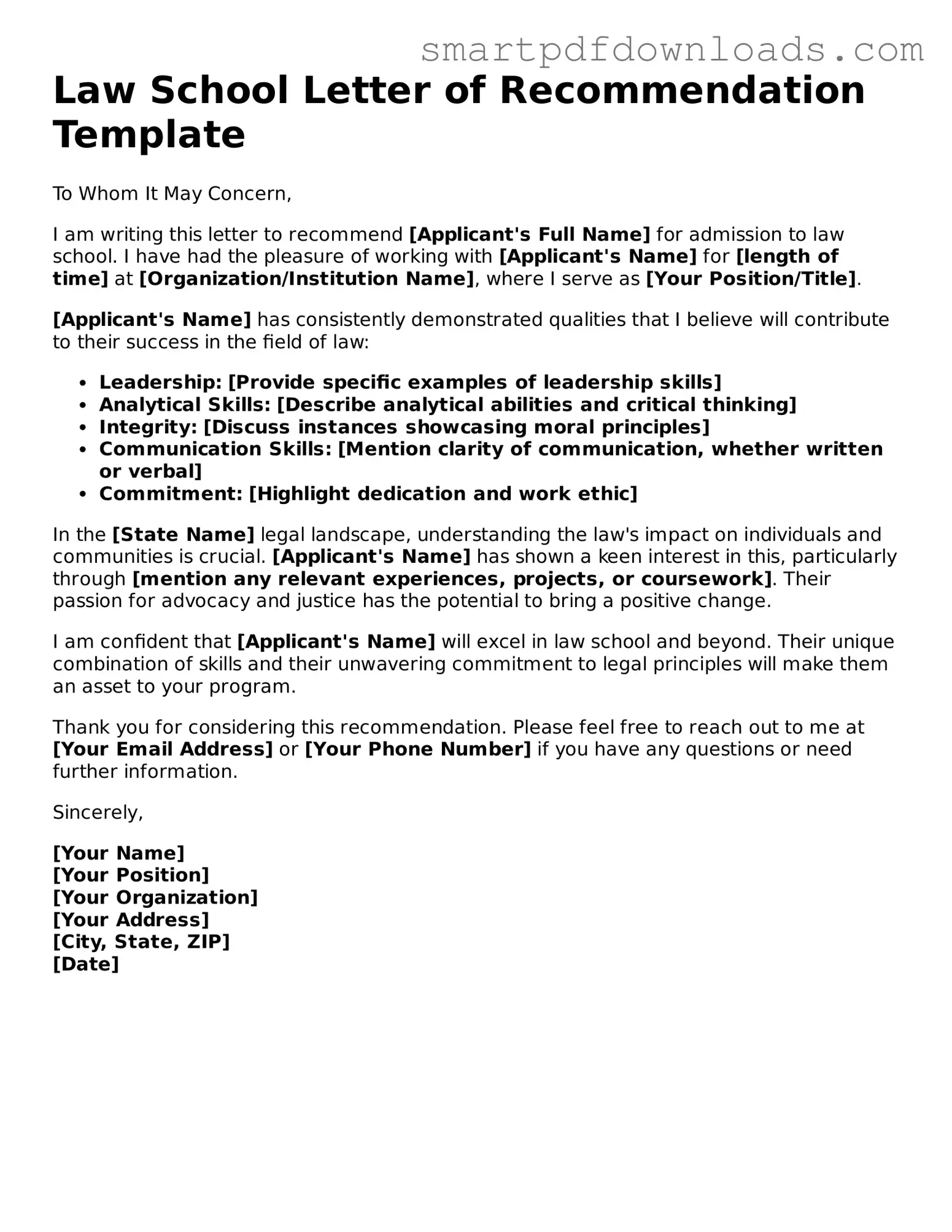Free Law School Letter of Recommendation Form
The Law School Letter of Recommendation form is a crucial document that allows individuals to provide insights into a candidate's qualifications and character for law school applications. This form typically requests specific information about the applicant's skills, experiences, and potential for success in legal studies. Understanding how to effectively complete this form can significantly enhance an applicant's chances of admission.
Edit Law School Letter of Recommendation Online

Free Law School Letter of Recommendation Form
Edit Law School Letter of Recommendation Online

Edit Law School Letter of Recommendation Online
or
⇓ PDF File
Finish the form and move on
Edit Law School Letter of Recommendation online fast, without printing.